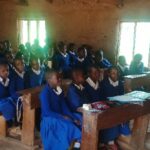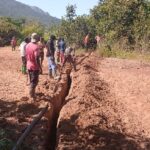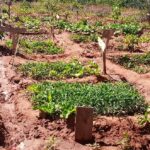Tanzania, Iringa region
Update April 2022
The construction of the storage tank at the secondary school has been completed this month, as well as the trench for the distribution system and the laying down of pipes. We did have a delay with digging the trench due to the reason that the villagesr were busy with farming activities. We have also completed a household baseline survey and provided hygiene and sanitation teaching at the primary school. The construction of water points has been started.
Construction of the water points will continue and of chambers along the distribution pipeline system. We shall also conduct seminars for hygiene and sanitation to the community.
Testimonials
We thank Emmanuel International for making things happen at the school, a lot of things have changed since we have access of water, this includes; having enough water for cooking food for students, we have managed to grow vegetables and fruit trees at school due to availability of water which is useful for watering gardens, presence of water has simplified construction activities at the school and also the project has also resulted into saving time which could be used by students in fetching water to be used for studying.
Naja Msokwa, Ibumu secondary school Headmistress
We are so excited that some of the villagers have started accessing clean water from the project twenty-four hours seven days. God bless you for the great job you are doing in serving Ibumu Community.
Village Chairman
The project proposal
Emmanuel International (EI) has been working with Ibumu for more than a decade. The village is participating in the IMARIKA project.
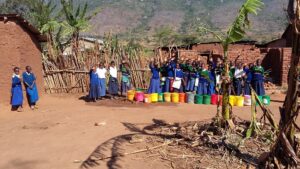
The water supply in the village is a gravity system that was constructed by DANIDA in 1980. The water source is clean, being a spring which rises in the mountains to the east. After nearly 40 years, population growth has vastly outstripped the water supply capacity, and only five water points and one cattle trough remain partly operational. The secondary school, being new and on the far edge of the village, does not have any water supply. Students at both the primary and secondary schools have to collect water from wherever they can, to bring to school with them. The village leadership see the inadequate water supply as the biggest challenge facing them at present.
“Water is a big challenge for us in Ibumu. There are 2 subvillages that have no waterpoints at all and the other waterpoints often don’t have water so women are having to walk for half an hour each time to get water. Students are carrying water to the secondary school every day, which is about 2 km from the nearest water source.”
Village Chairman Kigula
The development of the village is held back by a lack of adequate water supply. The government currently has no plans to rehabilitate or construct a new water supply scheme for Ibumu village. Following successful water and sanitation projects elsewhere, the village leaders have requested assistance from the Diocese of Ruaha (DR), who has, in turn, asked EI to assist them with this.
The existing water supply system has continued working for so long mainly due to its robust and easy to maintain design. The new water supply design has similar characteristics – a gravity supply system with no treatment process required, feeding adequate numbers of water points distributed throughout the village including at the schools and dispensary but will include a water storage tank in the system to accommodate the higher flow demand with more watering points.
The community will be involved in the construction of the new water system. Workshops will be held with village leaders and community members to encourage them to identify their assets and take ownership of the project. Ajery Kahise, the project manager, will work with the village and subvillage leaders to coordinate labour to dig trenches for the pipes, all of which will be done by community members. The community will be charged a tariff for the operational costs of the water supply, expected to be around TZS10,000 (£3.30) per person per year. At the primary and secondary schools an appointed group which includes staff and students, the school water committee, will be trained in the use and maintenance of the water point and sanitation facilities. This will help to ensure the school students understand the importance of good hygiene and sanitation and its practical application. In the community, an executive committee, who will form a legally registered Water Users Association, will be facilitated. The committee, together with village leaders and religious leaders, will be fully trained on all aspects of running the community water supply including national water law and policy.
As part of the project, 2 new latrine blocks at the primary school (one for boys, and one for girls, including handwashing stations at latrine entrances) and handwash stations at secondary school latrine blocks will be constructed.
The project started in July 2021 and construction is expected to be complete by September 2022.
Our team
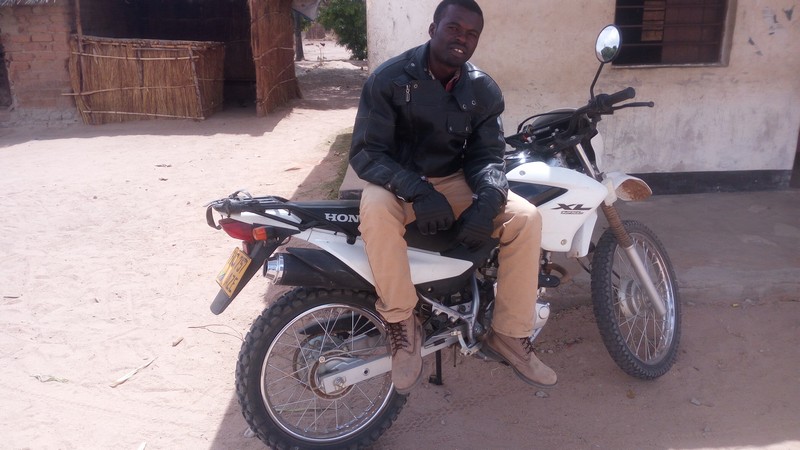
Ajery Kahise
Project Manager
My name is Ajery Kahise. I’m married to Dorcus. We thank God for blessing us with a gorgeous daughter called Carla.
I’m currently working as a project manager for water and sanitation projects and Administration officer for Iringa office. I have been working with Emmanuel International since 2016, specifically for the water projects. Since 2016 I have participated in number of projects including; Kiwere water project, Lupembelwasenga water project, Isimani water project and currently Ibumu water project which is nearly completed.
I enjoy working for water projects because I’m directly working with community from the grassroots, thus I get opportunities to learn and work together with local people. I feel that I’m serving directly to given communities.


